Does Walmart Have Garden Of Life Organic Plant Based Protein Packets
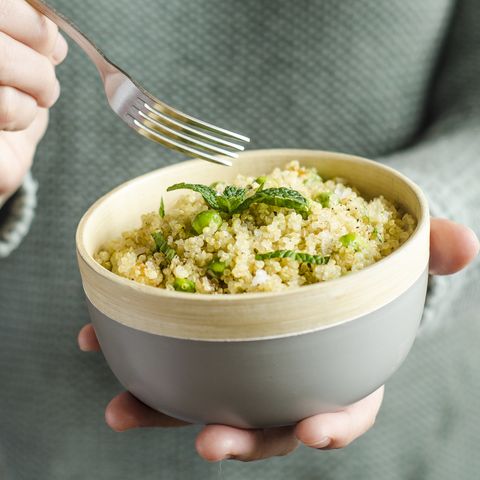
Sonia Martin Fotografias - www.aquesabenlasnubes.com Getty Images
Do you know there are many ways you can grow your own plant-based protein in your garden? UN experts say a plant-based diet can help fight climate change, following a major report for the UN's Intergovernmental Panel on Climate Change (IPCC), which concludes that the West's high consumption of meat and dairy produce is fuelling global warming.
Officials have stopped short of saying that everyone should become vegan or vegetarian, but more people could cut down on eating meat.
A quarter of global emissions come from food and more than half of food emissions from animal products, so we can all do our part to protect the planet by swapping some of our protein sources for plant-based alternatives.
Growing your own produce is one of the best ways to reduce your carbon footprint and if you're making the switch to a plant-based diet then why not flex your green fingers? Take a look at the different ways you can grow your own plant-based protein in your garden.
Green leafy vegetables
Mostly found in the brassica family, green leafy vegetables are great for their vitamins and minerals but they also contain a surprising amount of protein.
'Both kale and spinach grow well in mild climates and are at their best when allowed to mature in cool temperatures,' explain the experts at The Greenhouse People. 'Start spring seeds indoors or in a greenhouse about six weeks before the last frost and transfer outdoors once the temperature heats up. Keep in partial shade, water often and you could be enjoying a bountiful crop in 30-40 days.'
Of course, an easy way to add more greens to your diet is to introduce spinach leaves to your smoothies and salads. Alternatively you could swap out less nutritious ingredients for kale leaves.
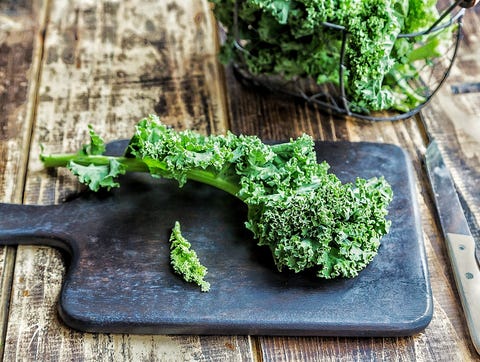
Sandra Rsch / EyeEm Getty Images
Good grains
Unrefined grains are another overlooked source of plant-based protein: Quinoa is the 'mother of all grains' and can be easily grown in the UK.
'Sow in April and harvest the colourful seed heads in early autumn,' advise The Greenhouse People. 'Amaranth is another great grain, sown in early June in a sunny spot and harvested in Autumn. Amaranth leaves can be eaten raw in salads or cooked like spinach, while the seeds can be popped like corn or added to soups and stews.'
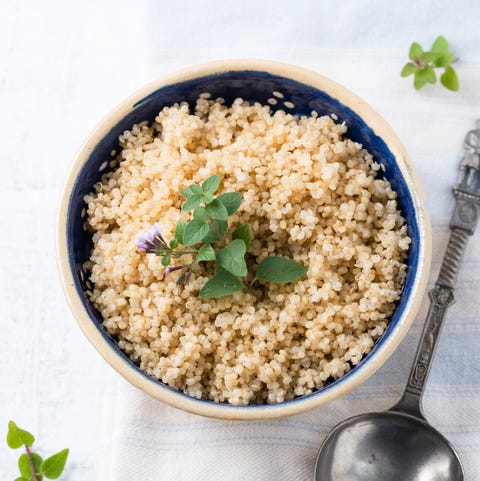
Westend61 Getty Images
Super seeds
As one of the best sources of plant-based protein, seeds can be enjoyed sprinkled over your porridge or smoothie, in your lunchtime salad or as a snack on the go. Not only is it a versatile ingredient in the kitchen, but some seeds are the by-product of plants that you might already grow, such as pumpkins or sunflowers.
Chia and flax seeds are also very easy to grow at home. All you need to do is sprinkle seeds on a weed-free and well-mulched area of your garden. Water well, but when seed heads appear stop until they ripen and turn golden yellow, before pulling up the plants and hanging them to dry out.
You'll also have seeds to regrow in your garden next year and a protein-packed ingredient for your kitchen.

Lorenz Faustini / EyeEm Getty Images
Nuts
'For the gardener up for the challenge, growing your own nuts is an unusual way to save money and up your protein intake,' say The Greenhouse People. 'Hazelnuts are a highly nutritious nut that can be expensive to buy from supermarkets. Thankfully, they're suitable for garden growing, so you don't need a woodland.'
So, how do you grow your own? Start your hazelnuts in a pot and transfer to the ground during winter, digging a hole large and deep enough to comfortably accommodate the roots. Remove any weeds and vegetation in the surrounding soil and mulch well. Keep well hydrated during the first year, then your hazelnut tree will be low maintenance.

Isabelle Rozenbaum Getty Images
Peas
Peas, a protein-rich legume, are an easy and reliable crop and an ideal way to introduce children to growing their own. For a higher chance of success, plant seedlings indoors and transfer them outside once the soil warms up.
The Greenhouse People explain: 'Pea plants like a moist, fertile and well-drained soil. Avoid using nitrogen-rich fertilisers, as this will cause leafy growth as opposed to producing pea pods.'
Peas taste incredibly sweet picked right from the garden about three weeks after the flowers appear, but they can be cooked up into dishes like risotto or a protein-packed side dish.
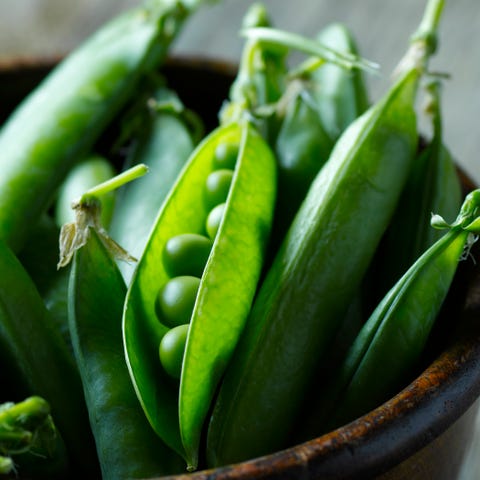
Ben Monk Getty Images
Twist 'n' sprout
No garden? It's still possible to grow your own protein. The seeds of the alfalfa plant will grow on your kitchen windowsill and once sprouted can rival meat in nutritive value.
Simply add two tablespoons of seeds to a bowl, and cover with twice the amount of water. Let them soak overnight, then drain and rinse. Repeat rinsing and draining twice a day for about three days. Once the sprouts have reached the desired length, they're ready to eat.
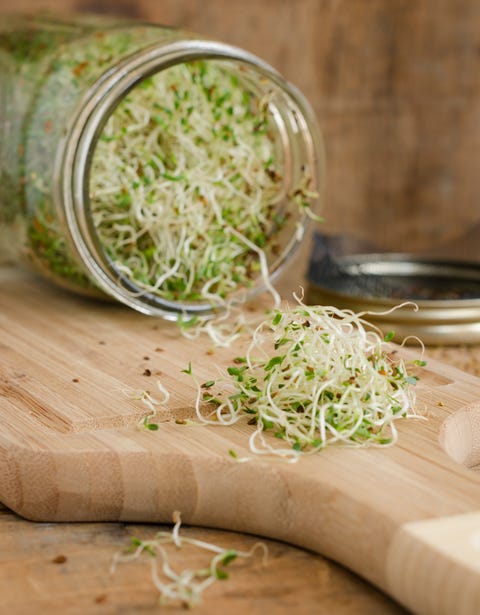
Brycia James Getty Images
Like this article? Sign up to our newsletter to get more articles like this delivered straight to your inbox.
SIGN UP
6 essential oils to promote mental wellbeing
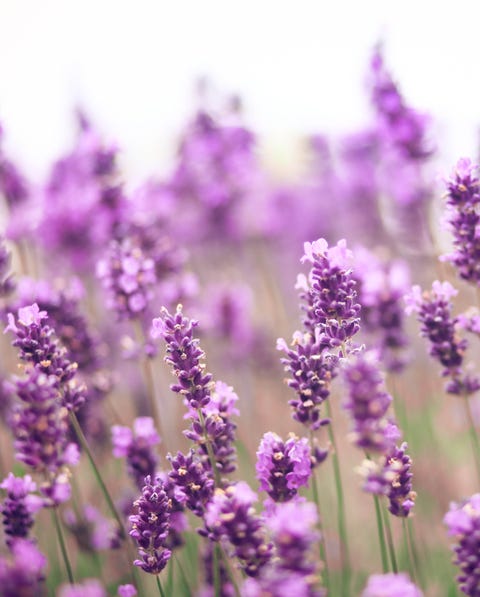
Lavender
Lavender is one of the most popular and well-known essential oils. With a fresh, sweet and floral aroma, this wonder scent has been known to have anti-inflammatory, antidepressant and sedative effects.
'There's a large body of evidence to show how inhaling lavender oil can calm the mind and body and improve the sleep cycle, helping to lower stress, improve memory and boost the immune system.
Want a quality night's sleep? All you need to do is add a few drops of lavender oil to your bath at the end of the day to help you relax and unwind, giving you a better chance of a quality night's sleep.
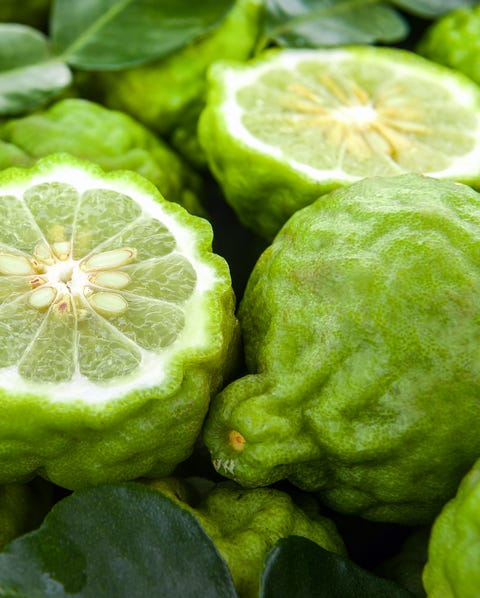
Bergamot
Extracted from the peel of the bergamot orange, bergamot oil has a light citrus scent with floral notes and is said to have therapeutic benefits.
Using bergamot oil can help to reduce blood pressure, heart rate and respiration and increase levels of the 'feel-good' hormone serotonin. It's also used in aromatherapy to elevate mood and alleviate stress.
A recent study showed women receiving mental health support achieved 17 per cent higher positivity scores when using bergamot oil over eight weeks compared to women exposed to a placebo.

Rose Otto
Rose Otto is an extravagant essential oil, sourced from the Rosa Damascena plant. It requires approximately 4,000kg of flowers to produce just 1kg of oil.
The fragrant oil promotes relaxation, slows the heart rate and reduces anxiety. A recent study saw an improvement in patients' emotional state and levels of anxiety after inhaling Rose Otto oil for four weeks.
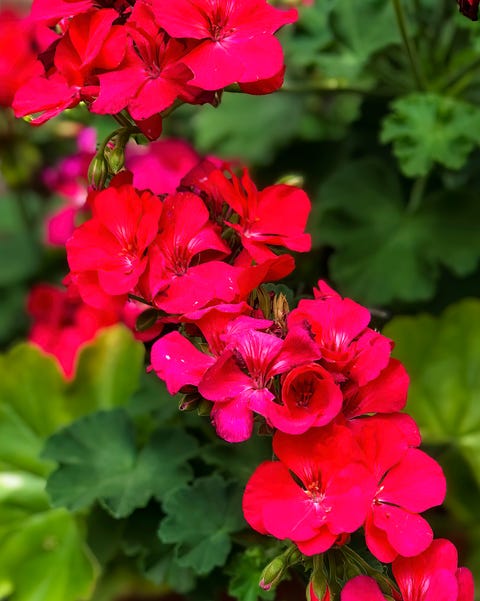
Geranium
A gardener's favourite and a popular summer plant, the geranium is famous for its long-lasting, brightly coloured flowers, but who knew its floral oil was so beneficial to the mind and body?
In aromatherapy, geranium is used to promote emotional balance, treat insomnia and alleviate pain. You can enjoy high-concentrate pure geranium oil via a diffuser or vaporiser.
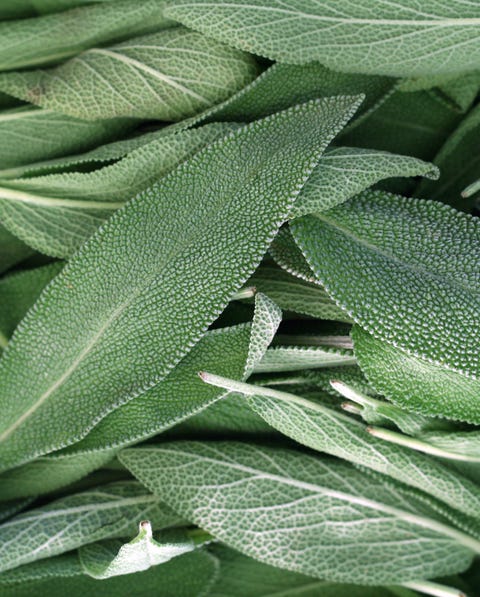
Sage
Earning the nickname 'Sage the Saviour' in the Middle Ages for its therapeutic powers, sage is a natural mind stimulant – with a strong earthy aroma – which has a strengthening effect on the senses to help ease negative moods.
It's packed with composites that act as antioxidants, which have been shown to buffer the brain's defence system and promote long-term emotional wellbeing.
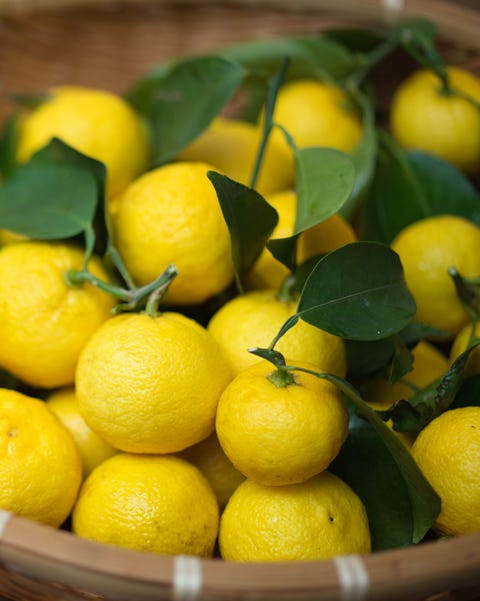
Yuzu
The oil from yuzu is famed for having a refreshing and uplifting effect on the body, while calming the mind.
With a scent which resembles a combination of mandarin and grapefruit, yuzu calms the nervous system, helping to relax the body and stop the fight or flight response.
This content is created and maintained by a third party, and imported onto this page to help users provide their email addresses. You may be able to find more information about this and similar content at piano.io
Does Walmart Have Garden Of Life Organic Plant Based Protein Packets
Source: https://www.housebeautiful.com/uk/garden/plants/a29664120/plant-based-protein/
Posted by: keslercontold.blogspot.com

0 Response to "Does Walmart Have Garden Of Life Organic Plant Based Protein Packets"
Post a Comment